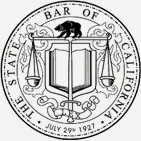
408-971-6270
2020 – The Year of the Lease
 This is the time of year when I sum up big legal milestones in real estate. Unsurprisingly, COVID-19 was the driving force for emergency regulation in 2020 and most of the new law was due to the pandemic. In reviewing the real estate legal landscape in California for 2020, it’s not surprising that I would dub it The Year of the Lease.
This is the time of year when I sum up big legal milestones in real estate. Unsurprisingly, COVID-19 was the driving force for emergency regulation in 2020 and most of the new law was due to the pandemic. In reviewing the real estate legal landscape in California for 2020, it’s not surprising that I would dub it The Year of the Lease.
Residential Leasing:
The big law of 2019 was AB1482 (the California Tenant Protection Act of 2019) and the big law of 2020 was AB3088, the COVID-19 Tenant Relief Act of 2020, followed closely by Prop 19 and SB1079. Both AB1482 and AB3088 were enacted to protect California’s residential tenants.
Initially AB3088 effectively prevented eviction of residential tenants until Jan. 31, 2021, at which point, tenants were obligated to pay 25% of their past due rent from Sept. 2020 through Jan. 31, 2021. Odds of that seemed low to unrealistic and Senate enacted SB91 to extend that relief to extend until July 1, 2021. The added relief in SB91 was the introduction of rent relief to landlords if landlord agreed to forgive 20% of the past due rent. The mechanics of this are still unclear at the time of writing this. The Governor signed SB91 on Jan. 29, 2021.
Buried in AB3088 was the Homeowner Relief Act, which heightened some foreclosure requirements for lenders.
Even SB1079 gives a nod to residential tenants by creating a right (sort of like a right of first refusal or option) to make an offer on the property they are occupying after the foreclosure sale of the property.
Commercial Leasing:
Whether you were a tenant or a landlord, two big provisions in your lease started becoming more significate: abatement and force majeure.
Abatement is the concept that rent should be halted when there is a cessation of service or a breach of the covenant of quiet enjoyment. This seems especially apt during a time when entire shopping malls were closed for months. Some mall leases even have provisions regarding other tenants being open. It’s fair to say nobody anticipated a government ordered shutdown. However, some landlords may opt to tack on the obligation at the back end of the lease as deferment but not abatement—especially if the tenant received EIDL or PPP funds.
Force majeure provisions are often referred to as an “act of God” clause. Cal. Civ. Code § 3526 provides that “No man is responsible for that which no man can control” while Cal. Civ. Code § 1511 (2), provides that the performance of an obligation is excused “when it is prevented or delayed by an irresistible, superhuman cause, or by the act of public enemies of this state or of the United States, unless the parties have expressly agreed to the contrary.”
However, most force majeure provisions specify that the tenant is still responsible for the rent. While it seems patently unfair given the devasting effect of government ordered shut downs to so many California businesses, the caselaw has generally noted that when entering the lease, both parties are “sophisticated” and had the opportunity to negotiate the terms before executing.
In the case of a lease, the issue remains whether “tacking” to the back end of the lease to delay performance is the more appropriate remedy as opposed to terminating the rent obligation. In the post WWII case of Autry v. Republic Prods., Inc., the court considered a personal services contract. Plaintiff alleged impossibility after enlisting in the military and could not perform his duties under the contract. The court canceled the contract finding that WWII was not contemplated by the parties and by the time the war was over, the economic conditions altered dramatically enough to excuse performance of a contract he signed prior to the war. [Autry v. Republic Prods., Inc., 30 Cal. 2d 144, 156 (1947).]
It remains to be seen whether modern juries will find that the obligations are merely delayed or whether they will find that there was frustration of purpose or other relief that would wholly excuse the tenant.
Honorable Mentions:
First runner up: AB1885
California’s Homestead Exemption for 2021 has increased significantly. AB 1885 amends Section 704.730 of California’s Civil Code:
(a) The amount of the homestead exemption is the greater of the following:
(1) The countywide median sale price for a single-family home in the calendar year prior to the calendar year in which the judgment debtor claims the exemption, not to exceed six hundred thousand dollars ($600,000).
(2) Three hundred thousand dollars ($300,000).
(b) The amounts specified in this section shall adjust annually for inflation, beginning on January 1, 2022, based on the change in the annual California Consumer Price Index for All Urban Consumers for the prior fiscal year, published by the Department of Industrial Relations.
So not only is the homestead exemption much larger, it will continue to adjust for inflation.
Second Runner Up: PROP. 19
Proposition 19 increased portability for seniors to relocate and preserve their Prop 13. Basis. As of Feb. 16, 2021, California Constitution Article XIII A, §2(h) is inoperative. It is replaced with a parent-child or grandparent-child reassessment exclusion for only the transferor's principal residence and a family farm. The reassessment exclusion is further limited to the market value at the time transfer up to the property's current assessed value plus $1 million (with the $1 million adjusted annually by the Federal Housing Finance Agency's House Price Index for California starting Feb. 16, 2023.) Because the transferor must use the transferred property for their principal residence, this statute forces an evaluation of whether to keep that property or sell it when the properties were intended as investment income properties for the transferor’s children and grandchildren.
Related Posts
By accepting you will be accessing a service provided by a third-party external to https://www.diemerwei.com/






